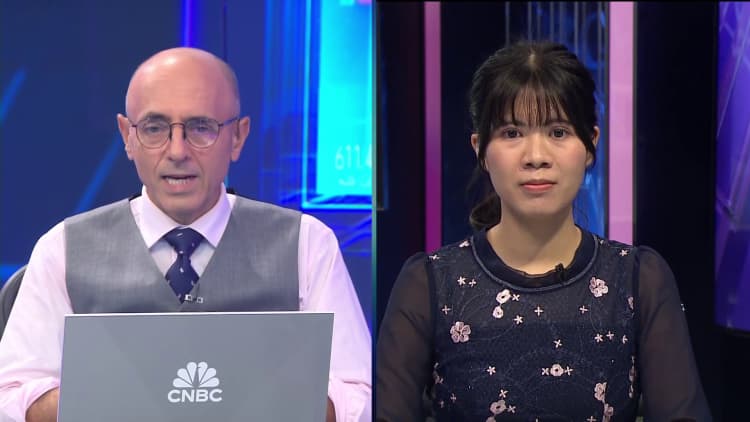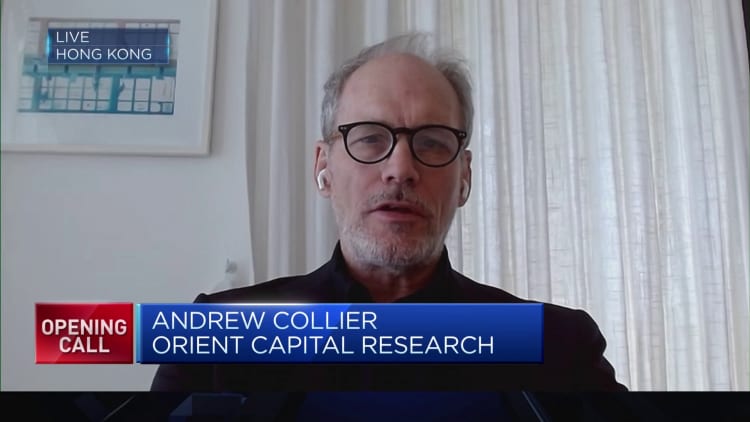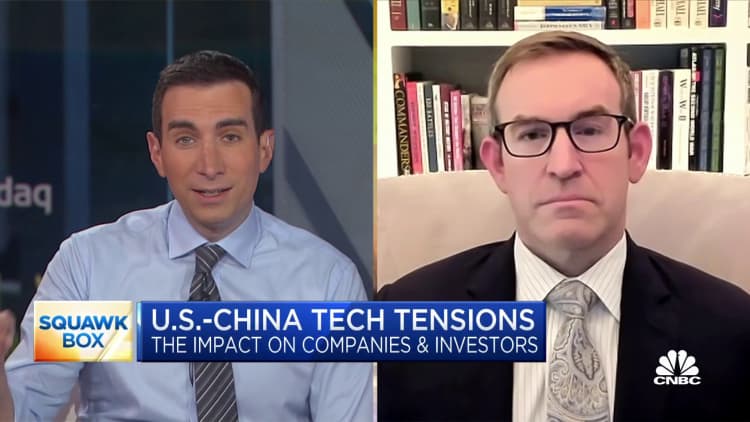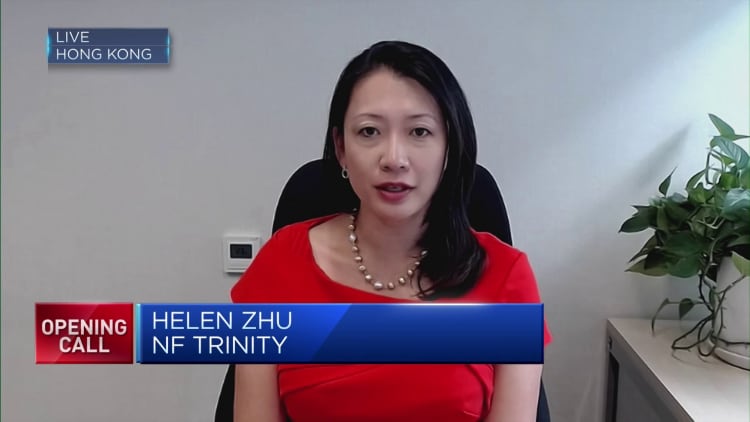China’s top leaders vowed to “adjust and optimize policies in a timely manner” for its beleaguered property sector, while elevating stable employment to a strategic goal, along with other pledges to boost domestic consumption demand and resolve local debt risks.
Ullstein Bild | Ullstein Bild | Getty Images
China’s top leaders pledged to “adjust and optimize policies in a timely manner” for its beleaguered property sector, while elevating stable employment to a strategic goal, along with other pledges to boost domestic consumption demand and resolve local debt risks.
Chaired by President Xi Jinping, the Communist Party’s top decision-making body said it would implement a “counter cyclical” policy and stick largely to a prudent monetary policy and pro-active fiscal policy, according to a readout published late Monday of a quarterly meeting of the Politburo.
The July Politburo meeting typically sets the tone for China’s economic policies for the second half of the year, with market watchers eagerly awaiting firmer guidance on policy support for faltering growth in the world’s second-largest economy.
“Currently, the economy is facing new difficulties and challenges, mainly due to insufficient domestic demand, difficulties in the operation of some enterprises, many risks and hidden dangers in key areas, and a grim and complex external environment,” Xinhua quoted the Politburo as saying.
The post-pandemic economic recovery will proceed in a “wave-like” fashion in a “tortuous” process, it added. The Chinese phrase for risk appeared at least seven times in the readout, underscoring the government’s focus on its containment.
A raft of disappointing economic data last week prompted renewed calls for policy support to bolster growth, though Premier Li Qiang had previously said China is on track to reach its annual growth target of about 5% this year.
Official data last week showed that China’s second-quarter gross domestic product grew 6.3% from a year ago, marking a 0.8% growth compared with the first quarter — dramatically slower than the 2.2% quarter-on-quarter pace recorded in the January to March period.

“While it signaled more support for the economy, the Politburo meeting generally fell short of offering large-scale stimulus,” said economists at Barclays in a note late Monday.
“We view this as a signal that the government would stabilize growth around its target but refrain from an outsized policy response, given the top leaders’ intended shift in focus to ‘quality’ growth,” they added.
On Tuesday, Hong Kong and mainland China stock markets cheered the Politburo’s policy pledges, outperforming broader Asia-Pacific benchmarks. The Hang Seng Index jumped more than 3%, while the CSI 300 index of the largest A-share listings climbed more than 2%.
The Chinese property sector saw some of the strongest percentage gains in Hong Kong, with developer Country Garden rebounding more than 14% from a nine-month low. Longfor Group surged more than 21% from a seven-week low, while China Overseas Land climbed more than 11% and China Vanke gained nearly 9%.
Real estate in focus
Observers noted that the Politburo dropped the phrase “housing is for living in, not speculation” from its wording on the country’s real estate sector.
In its place, the Politburo now talks about adapting to “major changes” in the demand-supply dynamics in the property market, with city-specific measures to better meet residents’ essential housing demand and their needs for better housing. It also pledged to “revitalize all types of idling properties.”
The country’s property sector is struggling to emerge from a credit crisis after the government cracked down on its debt levels in Aug. 2020.

Years of exuberant growth led to the construction of ghost towns where supply outstripped demand, as developers looked to capitalize on the desire for home ownership and property investment.
By some calculations, the country’s property sector still accounts for up to a quarter of China’s annual economic activity.
The Politburo on Monday said it is necessary to effectively prevent and resolve the risks of local debts, and formulate and implement a package of debt reduction plans. It also deems “necessary” the strengthening of financial supervision and the steady reform of high-risk small and medium-sized financial institutions.
“We view the July Politburo meeting statement as slightly more dovish than expected, mainly reflected in the neutral statement of the current economic situation, the deletion of ‘housing is for living in, not for speculation’ and the acknowledgment of new developments in the property market,” Goldman Sachs economists wrote in a note late Monday.
“As the July Politburo meeting would set the tone for policy stance in 2H of this year, we think the new assessment of the economic situation, property market and local government debt would imply further policy easing measures in the next few months,” they added.
Supporting asset prices
China’s top leaders also indicated they plan to “activate capital markets and boost investor confidence,” while “maintaining the basic stability of the renminbi exchange rate at a reasonable and balanced level.”
This likely underscores Beijing’s discomfort with the recent weakness in the Chinese yuan against the dollar, Citi economists said in a note late Monday. That culminated in stronger fixes that strengthened the yuan.
The People’s Bank of China’s daily mid-point for the onshore yuan is closely watched for cues relating to its official position on the yuan’s movements. The central bank allows the currency to trade within a narrow band of 2% from each day’s midpoint.

China’s leaders also pledged to step up government investment, without offering further details. China also aims to accelerate the issuance and use of local government special bonds.
On encouraging private enterprises, the Politburo echoed an earlier announcement on Monday by China’s top economic planning agency that introduced a series of measures to promote private investment.
Among them, China’s National Development and Reform Commission is encouraging private investment projects to issue real estate investment trusts in the infrastructure sector to promote asset diversification and further broaden investment and financing channels for private investment.
Expanding domestic demand
Late Monday, China’s top leaders pledged to “actively expand domestic demand” and to “expand consumption by raising income levels.”
This is broadly in line with an earlier NDRC statement pledging to “restore and expand” consumption in a wide-ranging plan to bolster growth that includes boosting household income, improving business environment for private firms and stabilizing youth employment.
The Politburo also echoed earlier plans to boost consumption in automobiles, electronic products and household consumer goods and services.

“Those hoping for a new approach to stimulus involving greater transfers to households are likely to be disappointed,” Julian Evans-Pritchard, head of China economics at Capital Economics, said Monday in a note.
“The readout talks about boosting consumption but only indirectly, via supporting household incomes,” he added.
“We understand this to mean that rather than give households handouts, policy efforts should primarily focus on supporting employment, a goal that has now been elevated to a ‘strategically high level.'”
Correction: The story was updated to correct a translation in the headline.


